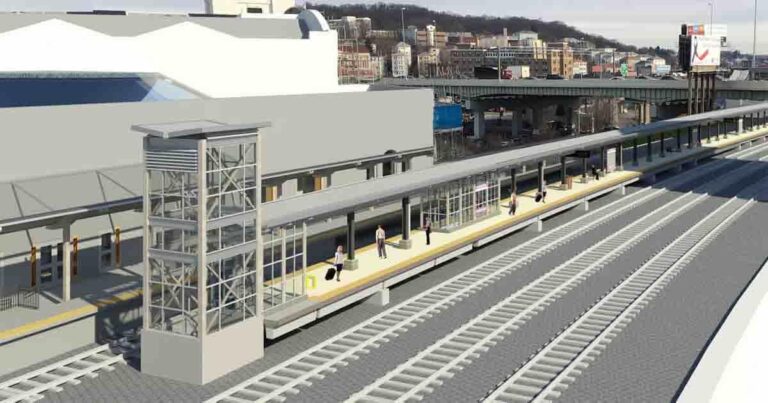The Massachusetts Bay Transportation Authority (MBTA) has officially announced its 2025 construction schedule, marking the commencement of the initial phase of a series of planned infrastructure projects. This schedule outlines key timelines and targets critical to enhancing commuter rail, light rail, and subway operations across the Greater Boston area. The declaration reflects MBTA’s commitment to improving service reliability and expanding capacity as part of its broader modernization efforts. Commuters and stakeholders alike are closely watching these developments, which promise to shape the future of public transit in the region.[1]
Table of Contents
- MBTA Outlines Priority Projects for Initial Phase Construction
- Impact on Commuters and Local Communities During 2025 Works
- Projected Timelines and Budget Allocations for Key Infrastructure
- Expert Recommendations for Minimizing Disruptions and Enhancing Safety
- To Conclude
MBTA Outlines Priority Projects for Initial Phase Construction
The Massachusetts Bay Transportation Authority (MBTA) has formalized a list of critical projects set to advance during the initial phase of its 2025 construction timeline. These projects aim to enhance infrastructure resilience, improve passenger experience, and modernize essential routes across the network. Key efforts include upgrades to signal systems, platform extensions, and accessibility improvements at high-traffic stations, ensuring the system meets growing demand while maintaining operational safety and efficiency.
Among the priority initiatives, MBTA highlights:
- Signal modernization on core commuter rail lines to reduce delays and increase train frequency.
- Platform height adjustments and elevator installations to comply with ADA standards.
- Integrated technology enhancements for real-time passenger information systems and automated announcements.
These projects underscore MBTA’s commitment to a more reliable and accessible transit system, positioning the agency to meet future transportation demands with greater efficiency and rider satisfaction.
Impact on Commuters and Local Communities During 2025 Works
Commuters within the MBTA network will experience notable adjustments as the 2025 construction phase begins, with service alterations designed to accommodate critical infrastructure upgrades. Anticipated impacts include revised train schedules, temporary station closures, and increased reliance on shuttle services.Local residents near construction sites may face intermittent noise,restricted access,and traffic disruptions,prompting the authority to implement proactive dialog measures to minimize inconvenience.
Key effects for commuters and communities include:
- Modified peak and off-peak train frequencies
- Temporary suspension of service at select stations
- Shuttle bus deployments to maintain connectivity
- Periodic construction noise during daytime hours
- Traffic pattern alterations around stations under renovation
MBTA officials emphasize a commitment to clarity and community engagement throughout the project timeline, encouraging riders and residents to stay informed via official channels. Contingency plans aim to balance operational efficiency with commuter convenience, ensuring the long-term benefits of the upgrades outweigh short-term disruptions. Local businesses in affected neighborhoods are also being consulted to coordinate access and support economic resilience during the construction period.
Projected Timelines and Budget Allocations for Key Infrastructure
Initial groundwork is slated to begin in Q3 2025, focusing on station upgrades and track improvements essential for enhancing commuter experience. Key milestones include the completion of electrical system overhauls by late 2026, aligning with the MBTA’s commitment to modernizing infrastructure while maintaining operational continuity. The phased approach aims to minimize disruptions, with the first wave targeting high-traffic corridors identified as critical for system reliability.
Budget allocations reflect a strategic distribution of resources:
- Electrification and signaling upgrades: $120 million
- Station accessibility enhancements: $75 million
- Track rehabilitation and safety improvements: $100 million
These investments underscore the MBTA’s dedication to delivering a safer, more efficient transit network, set against a backdrop of stringent fiscal oversight. Public reports indicate ongoing evaluations to ensure cost-effectiveness without compromising project scope or quality.
Expert Recommendations for Minimizing Disruptions and Enhancing Safety
Industry experts emphasize a strategic approach that balances construction efficiency with continuous commuter access to minimize disruptions during the MBTA’s 2025 initial phase. Recommendations include deploying advanced notification systems and real-time updates to keep passengers informed, complemented by well-coordinated option transit options. Additionally, maintaining clear and frequent communication channels with affected communities and stakeholders is essential to reducing confusion and easing transitions during service modifications.
- Enhanced safety protocols: Use of high-visibility signage, barricades, and dedicated safety personnel at active work zones.
- Staggered work schedules: Conducting the most disruptive construction activities during off-peak hours to limit commuter impact.
- Regular training: Ensuring all workers are fully versed in safety standards and emergency response procedures.
Experts stress that integrating technology such as automated audio announcements and improved on-site monitoring will not only heighten passenger safety but also streamline operations. This multi-layered methodology, combining physical safeguards with innovative communication tools, forms the backbone of a safer and more efficient construction rollout-underscoring MBTA’s commitment to prioritizing passenger well-being without sacrificing project momentum.
To Conclude
The MBTA’s unveiling of its 2025 construction schedule marks a critical step forward in transforming the region’s transit infrastructure. As the initial phase gets underway, commuters and residents alike can anticipate significant improvements designed to enhance service reliability and rider experience. With project timelines now public, stakeholders will be closely watching the MBTA’s progress throughout the year to see how these plans translate into tangible benefits on the ground. Further updates are expected as the agency moves from planning to active construction, underscoring a pivotal moment in Boston’s transit evolution.

